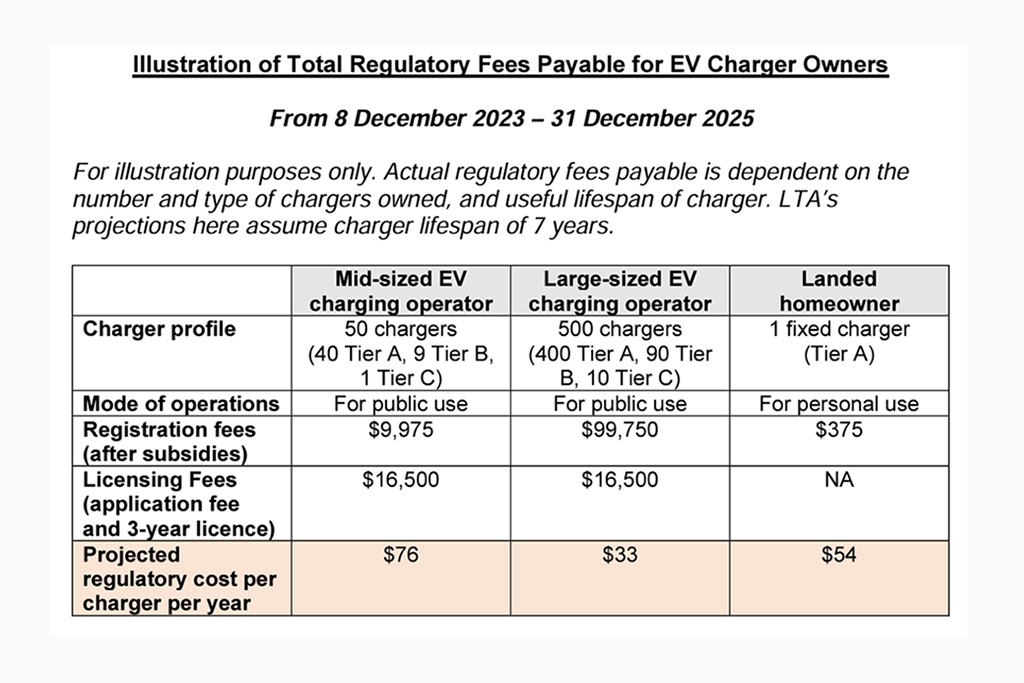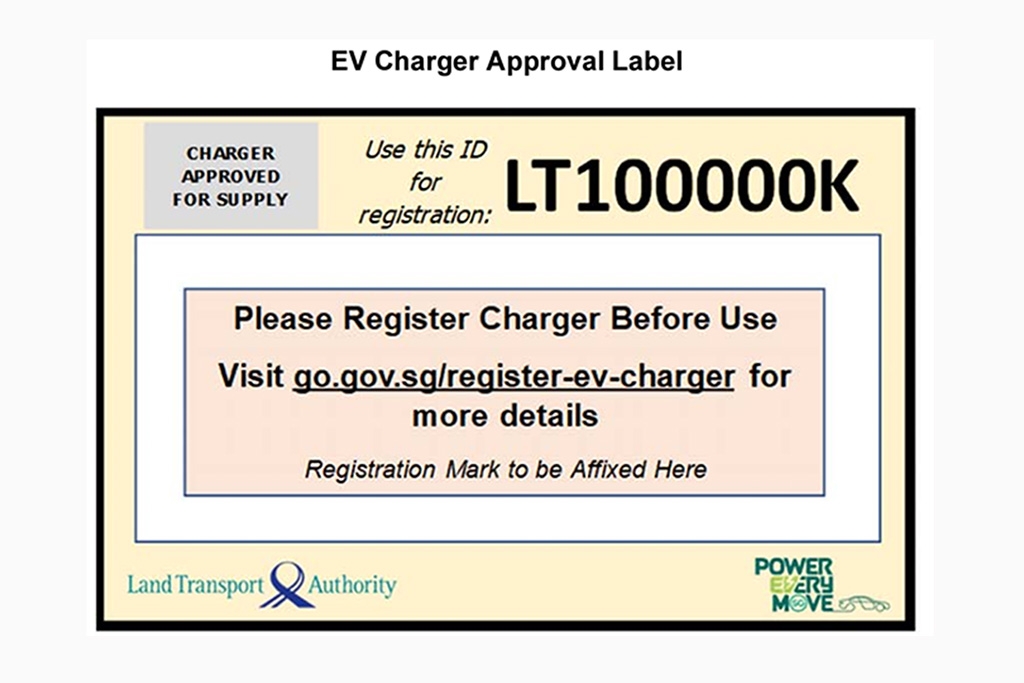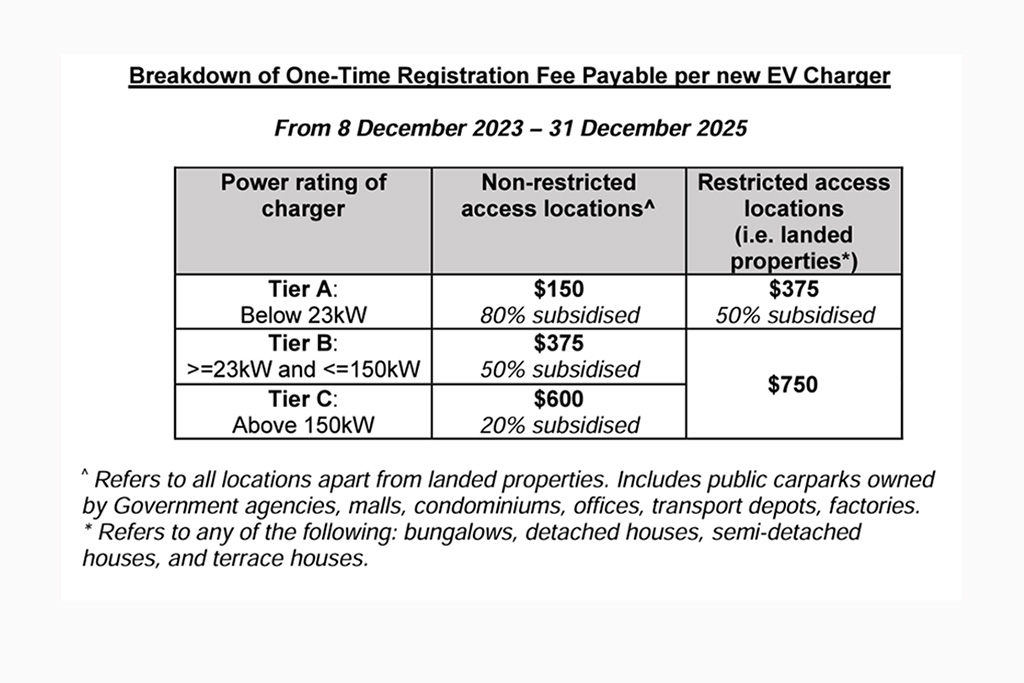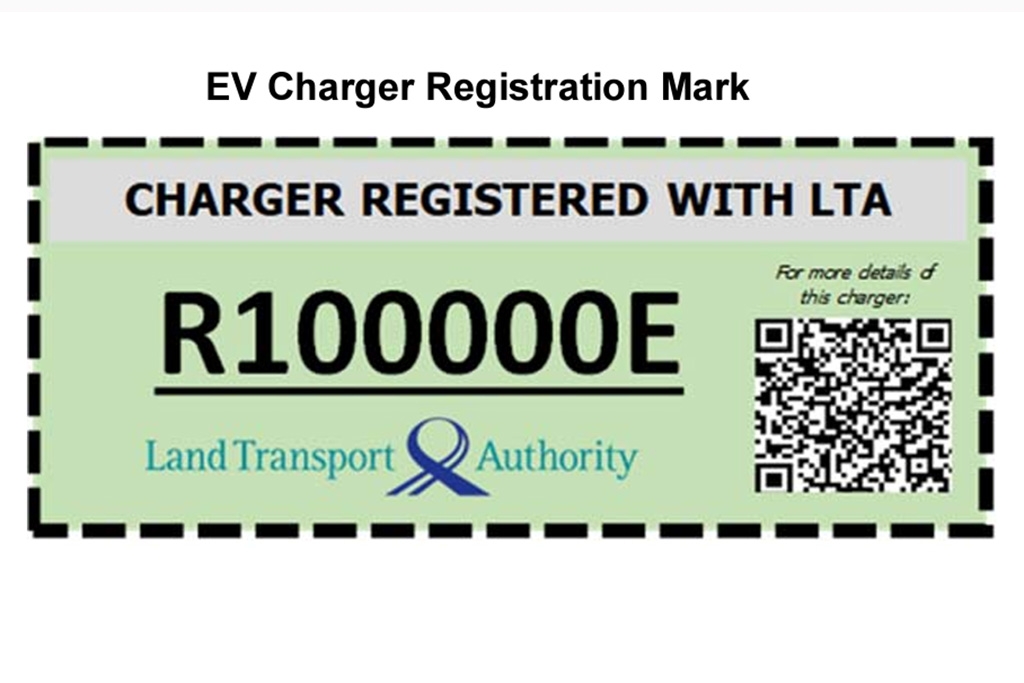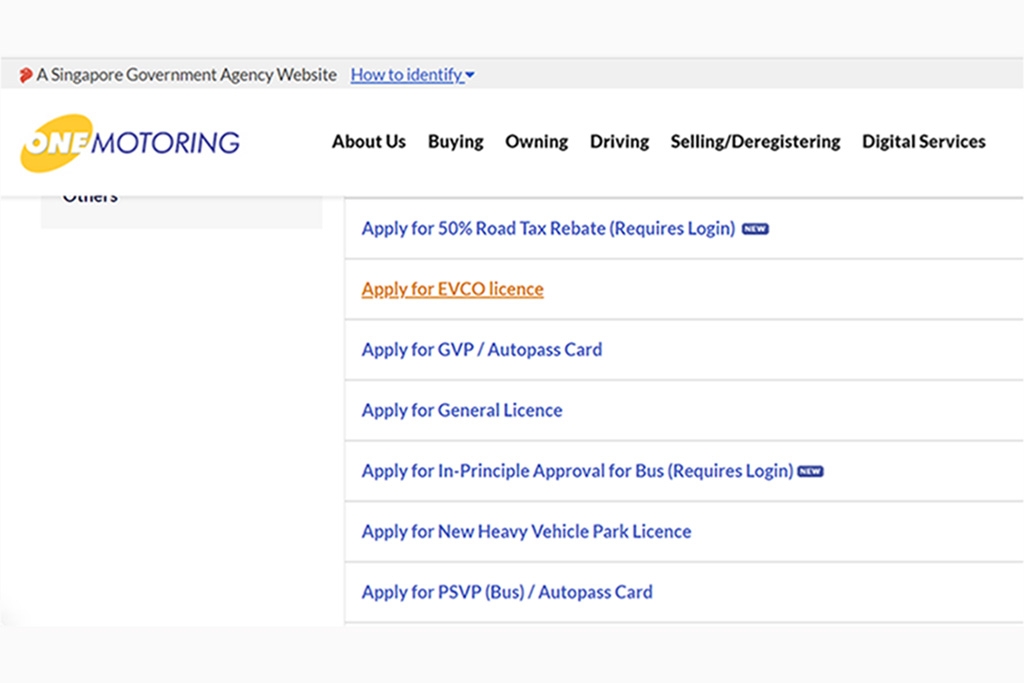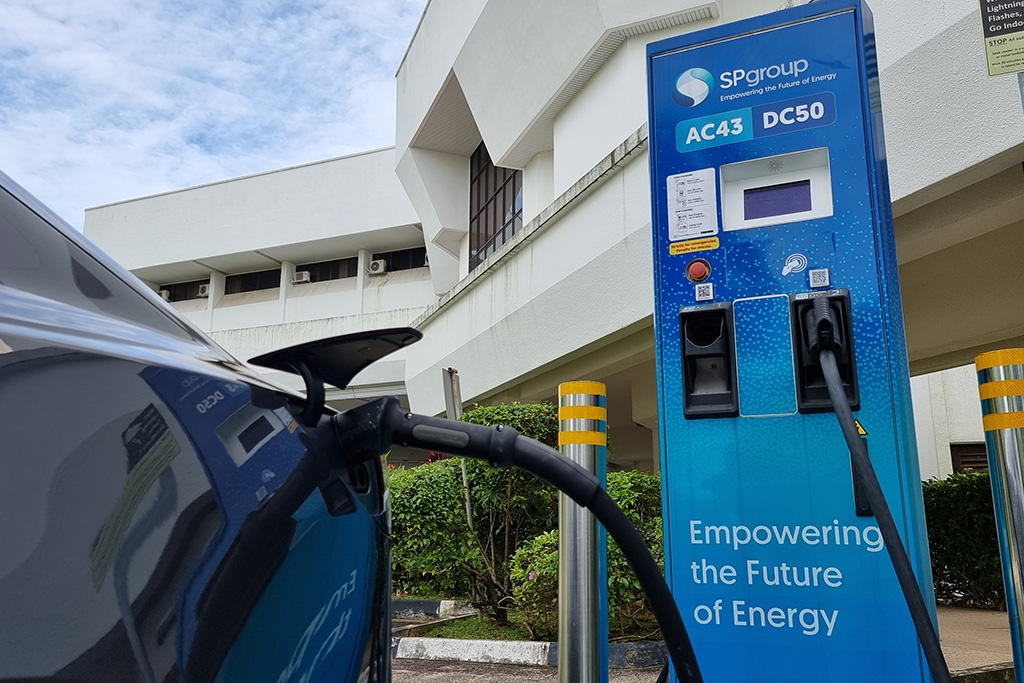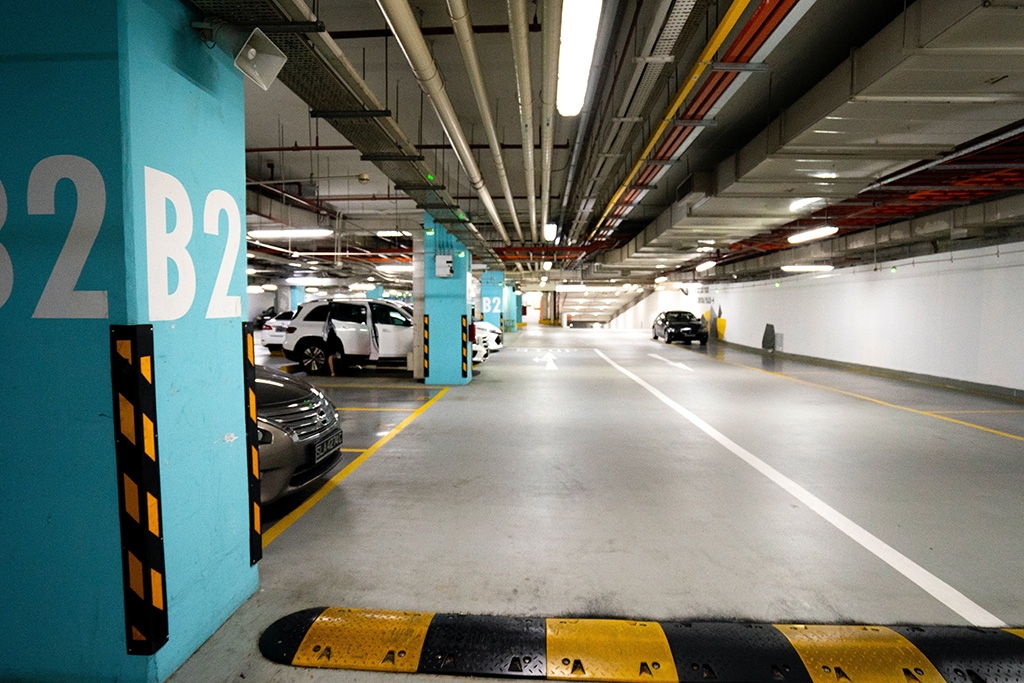How will the EVs Charging Act 2022 affect you?
08 Dec 2023|5,679 views
Starting today, Singapore has an Electric Vehicles Charging Act 2022 (EVCA) in force. The EVCA will regulate the safe charging of EVs, ensure the provision of reliable EV charging services, and expand the network of accessible charging infrastructure in Singapore.
How will the introduction of this Act affect EV charger suppliers, owners, operators, and building developers/owners? What are the implications if one finds themselves on the wrong side of Singapore's EV charging law?
For EV charger suppliers/owners/operators
1. EV charger models must be type-approved by LTA
As part of efforts to ensure EV chargers can safely supply charging services, charger models must be type-approved by the Land Transport Authority (LTA).
Suppliers must first submit a type-approval application to LTA. On obtaining LTA's approval, suppliers then apply for approval label(s) via the OneMotoring website. The approval label(s) are to be affixed onto the charger(s) before they can be supplied, installed or certified as fit for charging an EV in Singapore.
Between 8 December 2023 and 7 June 2024, EV charger suppliers can continue to supply existing/remaining non-type-approved chargers that comply with safety standards. This provides suppliers with a six-month transition period as they submit their type-approval applications.
However, the supply of a non-type-approved charger from 8 June 2024 will be considered an offence. First-time offenders may be liable to a fine of up to $40,000 and/or imprisonment for a term of up to 24 months.
2. All EV chargers must be registered before use
Under the EVCA, all EV chargers must be registered before they can be used. This is to facilitate the proper use and maintenance of the local EV network.
New EV chargers can be registered via the OneMotoring website using the type-approval ID found on the approval label affixed on the charger. If an EV charger does not have an approval label affixed, EV charger owners can contact their respective suppliers.
Owners who currently have an EV charger(s) that was installed before 8 December 2023 are required to provide LTA with their charger details to obtain a provisional ID for registration. Once done, LTA will issue a registration mark to the EV charger owner to affix onto the EV chargers, as proof of registration.
LTA said it will impose a one-time registration fee of $750 for the registration of an EV charger to "recover costs associated with the regulatory regime". It also said that the government will review the registration fees closer to December 2025.
At the same time, the government will provide the following time-bound subsidies to encourage the early deployment of EV chargers:
- Existing EV chargers that were purchased and installed before 8 December 2023 are eligible for free registration, if applications are submitted by 7 June 2024.
- New EV chargers deployed from 8 December 2023 to 31 December 2025 will receive differentiated subsidies. New low-powered EV chargers, which are shared and/or publicly accessible, will get more subsidies and be subject to the lowest registration fee.
Existing EV charger owners can continue to use unregistered EV chargers during the transition period from 8 December 2023 to 7 June 2024. Beyond that, it will be a breach of the EVCA. First-time offenders found guilty of charging an EV with an unregistered EV charger may be liable to a fine of up to $10,000 and/or imprisonment for a term of up to 6 months.
3. Get a licence to provide or operate EV charging services
To ensure EV charging network reliability, EV Charging Operators (EVCOs) will require a licence to provide EV charging services or operate EV charging stations. This applies to all EVCOs that provide public charging services to the public.
Landed homeowners who operate chargers to charge their households' vehicles, or fleet owners who operate chargers to only charge vehicles in their fleets, do not require a licence.
Licensees will be subject to licensing requirements and conditions, such as maintaining the service uptime of chargers in their network, purchasing public liability insurance to cover their operations and providing charging-related data to LTA. Applications for the licence can be made via the OneMotoring website.
Existing EVCOs can continue providing EVCO services until 7 December 2024, without a licence. Thereafter, all EVCOs will need to have a licence to provide EVCO services. Those who operate without a licence from 8 December 2024 may be liable to a fine of up to $30,000 and/or imprisonment for a term of up to 6 months.
For building developers/owners
The EVCA mandates the involvement of developments in the EV charging ecosystem to ensure accessibility of charging infrastructure. Buildings undergoing the following types of building and electrical works must provide EV charging infrastructure:
- Building works that (i) erect or re-erect a building or (ii) increase the existing gross floor area (GFA) of a development by at least 50%
- Electrical works involving an increase in approved electrical load, where the resultant approved electrical load is more than 280 kilo-volt ampere (kVA)
As part of the requirements, developers/development owners must supply a minimum power capacity of at least 1.3kVA per car and motorcycle parking lot in the development. This comes under the "Passive Provision" of electric charging in the EVCA.
The developments must also minimally have charging points that draw a total power of one-fifth of the Passive Provision required installed. This is required by the "Active Provision" of the EVCA.
These provisions will only apply to building works for which an application for planning permission is made on or after 8 December 2023, and electrical works for which an application for an increase in the approved electrical load of the development is made to SP Services on or after 8 December 2023. Developments with carparks that have fewer than eight parking lots will be exempted from the Active Provision mandate.
More information on the submission and application process for building and electrical works can be found on the OneMotoring website.
If non-compliance is detected, LTA may issue a remedial notice to require rectification works to be carried out within a stipulated time frame. Contravention of a remedial notice constitutes an offence and offenders may be liable to a fine of up to $30,000.
The Building Maintenance and Strata Management Act has also been amended to facilitate proposals in relation to the installation of EV chargers in strata-titled developments.
Starting today, Singapore has an Electric Vehicles Charging Act 2022 (EVCA) in force. The EVCA will regulate the safe charging of EVs, ensure the provision of reliable EV charging services, and expand the network of accessible charging infrastructure in Singapore.
How will the introduction of this Act affect EV charger suppliers, owners, operators, and building developers/owners? What are the implications if one finds themselves on the wrong side of Singapore's EV charging law?
For EV charger suppliers/owners/operators
1. EV charger models must be type-approved by LTA
As part of efforts to ensure EV chargers can safely supply charging services, charger models must be type-approved by the Land Transport Authority (LTA).
Suppliers must first submit a type-approval application to LTA. On obtaining LTA's approval, suppliers then apply for approval label(s) via the OneMotoring website. The approval label(s) are to be affixed onto the charger(s) before they can be supplied, installed or certified as fit for charging an EV in Singapore.
Between 8 December 2023 and 7 June 2024, EV charger suppliers can continue to supply existing/remaining non-type-approved chargers that comply with safety standards. This provides suppliers with a six-month transition period as they submit their type-approval applications.
However, the supply of a non-type-approved charger from 8 June 2024 will be considered an offence. First-time offenders may be liable to a fine of up to $40,000 and/or imprisonment for a term of up to 24 months.
2. All EV chargers must be registered before use
Under the EVCA, all EV chargers must be registered before they can be used. This is to facilitate the proper use and maintenance of the local EV network.
New EV chargers can be registered via the OneMotoring website using the type-approval ID found on the approval label affixed on the charger. If an EV charger does not have an approval label affixed, EV charger owners can contact their respective suppliers.
Owners who currently have an EV charger(s) that was installed before 8 December 2023 are required to provide LTA with their charger details to obtain a provisional ID for registration. Once done, LTA will issue a registration mark to the EV charger owner to affix onto the EV chargers, as proof of registration.
LTA said it will impose a one-time registration fee of $750 for the registration of an EV charger to "recover costs associated with the regulatory regime". It also said that the government will review the registration fees closer to December 2025.
At the same time, the government will provide the following time-bound subsidies to encourage the early deployment of EV chargers:
- Existing EV chargers that were purchased and installed before 8 December 2023 are eligible for free registration, if applications are submitted by 7 June 2024.
- New EV chargers deployed from 8 December 2023 to 31 December 2025 will receive differentiated subsidies. New low-powered EV chargers, which are shared and/or publicly accessible, will get more subsidies and be subject to the lowest registration fee.
Existing EV charger owners can continue to use unregistered EV chargers during the transition period from 8 December 2023 to 7 June 2024. Beyond that, it will be a breach of the EVCA. First-time offenders found guilty of charging an EV with an unregistered EV charger may be liable to a fine of up to $10,000 and/or imprisonment for a term of up to 6 months.
3. Get a licence to provide or operate EV charging services
To ensure EV charging network reliability, EV Charging Operators (EVCOs) will require a licence to provide EV charging services or operate EV charging stations. This applies to all EVCOs that provide public charging services to the public.
Landed homeowners who operate chargers to charge their households' vehicles, or fleet owners who operate chargers to only charge vehicles in their fleets, do not require a licence.
Licensees will be subject to licensing requirements and conditions, such as maintaining the service uptime of chargers in their network, purchasing public liability insurance to cover their operations and providing charging-related data to LTA. Applications for the licence can be made via the OneMotoring website.
Existing EVCOs can continue providing EVCO services until 7 December 2024, without a licence. Thereafter, all EVCOs will need to have a licence to provide EVCO services. Those who operate without a licence from 8 December 2024 may be liable to a fine of up to $30,000 and/or imprisonment for a term of up to 6 months.
For building developers/owners
The EVCA mandates the involvement of developments in the EV charging ecosystem to ensure accessibility of charging infrastructure. Buildings undergoing the following types of building and electrical works must provide EV charging infrastructure:
- Building works that (i) erect or re-erect a building or (ii) increase the existing gross floor area (GFA) of a development by at least 50%
- Electrical works involving an increase in approved electrical load, where the resultant approved electrical load is more than 280 kilo-volt ampere (kVA)
As part of the requirements, developers/development owners must supply a minimum power capacity of at least 1.3kVA per car and motorcycle parking lot in the development. This comes under the "Passive Provision" of electric charging in the EVCA.
The developments must also minimally have charging points that draw a total power of one-fifth of the Passive Provision required installed. This is required by the "Active Provision" of the EVCA.
These provisions will only apply to building works for which an application for planning permission is made on or after 8 December 2023, and electrical works for which an application for an increase in the approved electrical load of the development is made to SP Services on or after 8 December 2023. Developments with carparks that have fewer than eight parking lots will be exempted from the Active Provision mandate.
More information on the submission and application process for building and electrical works can be found on the OneMotoring website.
If non-compliance is detected, LTA may issue a remedial notice to require rectification works to be carried out within a stipulated time frame. Contravention of a remedial notice constitutes an offence and offenders may be liable to a fine of up to $30,000.
The Building Maintenance and Strata Management Act has also been amended to facilitate proposals in relation to the installation of EV chargers in strata-titled developments.
Latest COE Prices
August 2025 | 2nd BIDDING
NEXT TENDER: 03 Sep 2025
CAT A$104,524
CAT B$124,400
CAT C$72,190
CAT E$125,001
View Full Results Thank You For Your Subscription.











